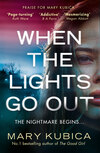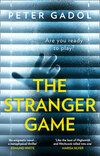Loe raamatut: «Followers»
MEGAN ANGELO has been an editor at Glamour magazine and a contributor to The New York Times, Elle, and many other publications. She is a graduate of Villanova University and lives in Pennsylvania with her family.
Followers
Megan Angelo

Copyright

An imprint of HarperCollins Publishers Ltd.
1 London Bridge Street
London SE1 9GF
First published in Great Britain by HQ in 2020
Copyright © Megan Angelo 2020
Megan Angelo asserts the moral right to be identified as the author of this work.
A catalogue record for this book is available from the British Library.
This novel is entirely a work of fiction. The names, characters and incidents portrayed in it are the work of the author’s imagination. Any resemblance to actual persons, living or dead, events or localities is entirely coincidental.
All rights reserved under International and Pan-American Copyright Conventions. By payment of the required fees, you have been granted the non-exclusive, non-transferable right to access and read the text of this e-book on-screen. No part of this text may be reproduced, transmitted, downloaded, decompiled, reverse engineered, or stored in or introduced into any information storage and retrieval system, in any form or by any means, whether electronic or mechanical, now known or hereinafter invented, without the express written permission of HarperCollins.
Ebook Edition © January 2020 ISBN: 9781474086349
Note to Readers
This ebook contains the following accessibility features which, if supported by your device, can be accessed via your ereader/accessibility settings:
Change of font size and line height
Change of background and font colours
Change of font
Change justification
Text to speech
For Mom and Dad, who taught me what is real.
Contents
Cover
About the Author
Title Page
Copyright
Note to Readers
Dedication
Epigraph
PROLOGUE
CHAPTER ONE
CHAPTER TWO
CHAPTER THREE
CHAPTER FOUR
CHAPTER FIVE
CHAPTER SIX
CHAPTER SEVEN
CHAPTER EIGHT
CHAPTER NINE
CHAPTER TEN
CHAPTER ELEVEN
CHAPTER TWELVE
CHAPTER THIRTEEN
CHAPTER FOURTEEN
CHAPTER FIFTEEN
CHAPTER SIXTEEN
CHAPTER SEVENTEEN
CHAPTER EIGHTEEN
CHAPTER NINETEEN
CHAPTER TWENTY
CHAPTER TWENTY-ONE
CHAPTER TWENTY-TWO
CHAPTER TWENTY-THREE
ACKNOWLEDGMENTS
About the Publisher
What? You seek something? You seek to multiply yourself tenfold, a hundredfold? You seek followers? Seek zeros!
Friedrich Nietzsche
I know how influential I am over my fans and followers. I feel like everything I do, my hair color, my makeup, I always start these huge trends, and I don’t even realize what I’m capable of.
Kylie Jenner
PROLOGUE
Marlow
New York, New York2051
So she still believed in mail, this woman, whoever she was. The first thing Marlow saw when she walked into the building was a grid of metal boxes, each with its own window and cobwebbed keyhole.
Most of the boxes had only blank spaces where the names had once been. But the one for 6D still had a label, and the name on it was the same one Marlow had written down in eyeliner at the Archive. She could see, behind the small square of glass, the white slant of a waiting envelope.
Marlow slid a bobby pin out of her hair, ignoring the wave that sprang free and clung to the sweat on her neck. Ellis had taught her how to pick a lock on their third date. “Why do you know how to do this?” she’d asked, watching him bend the pin. Though she didn’t know him well yet, she was sure he had never needed to steal. They had grown up the same way.
“I like exploiting the flaws in things,” Ellis had answered. And Marlow, twenty-two and in a hopeful phase, had laughed and let the omen sail high over her head.
Now she jiggled the crimped bit of metal in the keyhole, listening for the seize as he had taught her. Finally, the little door popped open and the envelope jutted toward her. She slid it into her back pocket, shut the box, and walked toward the elevator.
The stoned superintendent stared at her as she waited. His desk was tall, pointedly designed for someone to stand behind, but the man sat, his bloodshot eyes at the lip of the walnut veneer. He must have seen her pick the lock, but he didn’t say a thing.
On the sixth floor, the doors were painted jade, the color the carpet looked like it had been before it turned trampled brown. Marlow found the door with the oily brass D and knocked. No answer. She tried the knob. It turned, and then she was inside, her feet falling on a gaudy doormat—black rubber, with hot-pink stripes. Marlow winced. Now that she was seeing colors clearly again, she could not get over how many of them she disliked. She saw, in a flash of memory, the roses stuffed into her mother’s bathroom, just before she ran. That had done it for pink, she supposed. She’d be avoiding it the rest of her life.
No one was home. The apartment smelled like air that had been sitting undisturbed. To Marlow’s left, as the front door swung shut behind her, was a narrow kitchen wrapped in cheap white cabinets. Three stools sat beneath the gray counter that divided the kitchen from the rest of the long, charmless room. The place dead-ended twenty feet or so out, in a naked window overlooking Eighth Avenue. The walls were dull handyman white, the color of a place between people.
The couch was the thing that made her feel like something was off. It was plump and lived-in-looking, the color of melted chocolate. But on the cushion closest to the window, a precise rectangle of fabric had been bleached beige by the sun. It was not the kind of thing, Marlow thought, with a tweak in her stomach, that anyone just let happen. Staring at it, she felt the way she would if she was sensing an intruder, though this was the opposite: an absence, just as sinister.
She wasn’t sure how long she lay shaking on the couch, trying to recover from the chase. After a minute, after an hour, she sat up and looked at the mail she’d stolen. The envelope was soft with age. The faded stamp on its front claimed it had been sent from Los Angeles. Marlow scratched at the yellowed seal, scraping it upward bit by bit. She could never remember how to open these things.
The paper inside was child’s stationery, embossed at the top with a chain of daisies. Above them, in all capitals, was a declaration that made the skin on the back of her neck prickle: FROM THE DESK OF MARLOW. She had never seen the paper before.
Each sheet—there were three—had the same crazy look. Filled back and front and end to end, margins forgone. Words compressed, begging to be heard out, at the edges where their writer had misjudged the space left.
She was reading for several seconds before she realized: she wasn’t. She couldn’t. The letter was in another tongue, one with its own strange alphabet—lilting loops, curving tails, linked letters forming something both foreign and familiar. There—that word reminded her of free. But was it?
She’d have to take the letter with her. As if she didn’t look suspicious enough already, now she’d have three pages of paper on her person. She practiced fixing her face in a way that made this seem like nothing—Yes, I’m carrying a bunch of paper, casually. What’s the problem? People still have it for plenty of reasons. She was the last person who would have bought her own explanation. Paper had occupied a nervous place in Marlow’s childhood. There was a shredder in her house, kept on a high garage shelf, that each of her parents brought down and used when the other wasn’t home. Her mother used it to destroy the department store receipts she still insisted on cashiers printing for her, so that Marlow’s father couldn’t trace her greedy habits as easily. Her father fed the shredder wrinkled cocktail napkins, after he memorized the names and numbers on them.
She had grown up seeing paper as synonymous with secrets. It was why it still surprised her, how light it felt in her hands.
Her fingers still gripping the letter, Marlow looked up. She heard footsteps in the hallway, getting closer. She waited for the click of another door, the sound of someone who had every right to be here going home. But the footsteps kept getting louder until, finally, they stopped. She watched the steel handle of the apartment’s front door beginning to turn—slowly, soundlessly, like the person on the outside didn’t want to scare her yet.
She put the letter down on the counter carefully. Eyes, then balls? Balls, then eyes? She wished that she and Jacqueline hadn’t gone to happy hour before their self-defense class. “It’s just for fun, anyway,” Jacqueline had reasoned, lips pursed on the rim of her vodka martini. “If you ever get jumped for real, your device will walk you through what to do.”
But Marlow’s device was gone.
There had been a part in the self-defense class, too, Marlow recalled, about how to disarm a rogue bot. But bot-on-human violence almost never happened, and so that was the lesson she and Jacqueline paid the least attention to. If memory served, they had talked off to the side throughout the demonstration, admiring the instructor’s exquisite biceps.
If it was a bot, she would go for the hip area, where the controls were usually hidden.
If it was a human, she would go for the balls. The thought of her thumbs on someone’s eyes made her queasy.
The doorjamb gave way. Marlow braced herself up and down. She tried to look indestructible, like she was made of more durable stuff than whatever lay inside the thing or person in the hall. Stronger than heartless steel, stronger than menacing bone. Just as the door started out of its frame, the word for the language the letter was in came back to her. Cursive.
CHAPTER ONE
Orla
New York, New York2015
Orla left for the bad salad place without her phone, so it took her a while to find out that Sage Sterling had finally died. Sage was found on a poolside chaise at the Los Angeles hotel where she had been living for a year—never mind the fact that she was so broke, she often tipped the staff not from her handbag but with old handbags: scuffed-up Louis Vuittons, old Balenciaga totes with half the fringe worn off. The bellhops would make a big show of thanking her, then place the purses in the lost and found.
Sage was erratic and filthy and sporadically mean, and she kept a pet ferret named Mofongo in the room with her. Yet everyone felt compelled to treat her gently, because outside the stucco walls of the hotel complex, the world was waiting, teeth bared, for her to fuck up again. So it was not strange, as the staff would tell the police later, that no one stopped Sage when she let herself into the pool around three in the morning. And it was not strange that no one disturbed her when the sun came up and she was still there, sleeping soundly. She was, after all, known for her impenetrable naps. Paparazzi had captured Sage snoozing in roped-off sections of exclusive New York bars, on a ski lift in Gstaad (she rode it around for hours), and during the premiere of her own latest film, an expensive animated adventure based on the phone game Candy Crush. (Sage played a lemon drop.) Head back, Sage snored loudly through the whole terrible movie. Someone at the premiere captured her snuffling on video. It went viral instantly, via a website called Lady-ish.com. Orla was the one who put it there.
Sage had lain still at the pool until around eight in the morning, when a towel boy watched a seagull shit directly onto her stomach. Sage didn’t even flinch. The towel boy—“towel maintenance associate,” as he would later correct a reporter—walked over, wondering what the most tasteful part of her body to jostle was. He saw that her lips were blue. Her eyes were still, but just slightly open, watery slivers cast down through brittle lashes. He touched her shoulder, the one directly in the sun. It was cold.
Orla was in the middle of ordering her salad when the news on the flat-screen over her head cut to an aerial view of the hotel. The shot circled its gray slate roof, hovering above the oblivious billboards on Sunset, and informed viewers that, somewhere down there, Sage Sterling was dead at twenty-seven.
The girl behind Orla, who wore dingy flip-flops with her skirt suit, looked up from her phone and said, sounding bored, “I literally thought she was dead already.”
The stout Guatemalan man on the other side of the counter sighed as Orla gaped at the screen, ruffling brown-edged romaine with his tongs. He was waiting for her to choose another topping. Orla always spent a long time pretending to consider vegetables before saying, as if it had just occurred to her, “Actually, just double croutons, please.”
The man in front of Orla was tapping out a missive on his phone in all caps: SAGE STERLING DEAD! Like no one would know it had happened, Orla thought, if this guy didn’t tweet it.
Not that she was much different. Back at the Lady-ish offices, Orla’s intern would be looking over the obit Orla had written for Sage eighteen months ago, the one she had marked with a warning: DO NOT PUBLISH UNTIL. Sage had been Orla’s beat at Lady-ish for most of the time she’d worked there. Ingrid, Orla’s boss, had identified Sage as a source of “bonkers” traffic early on, when a post Orla tried about her nail art drew ninety thousand views in ten minutes. From then on, every move Sage made, every boy and girl she kissed, every gown she put on was Orla’s to write up. The clicks flooded in, even more so when it became apparent that Sage had a temper. Sage grabbed photographers’ cameras and forced them down to the sidewalk. Sage scratched a bouncer, nearly blinding him. Sage pushed her boyfriend off his own parents’ yacht. Orla received small bonuses for stories that clocked more than five million views in a day; Sage’s boat rage had paid for her laptop. She tried now, very hard, not to think about what the star’s death might bring, pushing away the thought of a pair of boots she had seen in a shop window recently—soft gray suede and knee-high, meant to be worn in weather that was still weeks away. Maybe months, with this heat.
Orla apologized to the Guatemalan man and left. The intern would have published Sage’s obituary by now, Orla’s name at the top of it. The clicks would be raging, Ingrid ecstatic. No one on the internet would care about anything else today. Orla could afford, in terms of time and money, to go to the good salad place now.

That night, Orla wrote three hundred ninety-six words of her novel while watching a dating competition show. She had been aiming for six hundred words, but the episode had been too engrossing. Dabbing at her nose with a tissue, a finalist had confessed that she was bipolar. The oatmeal-faced host had raised his eyebrows and said, “Wow. This is a first for us.”
Orla promised herself she would write more tomorrow. Three hundred ninety-six words, she figured, would turn easily into six hundred once she went back and filled in some of the parts about the Orthodox Jews. She didn’t know any Orthodox Jews. She kept meaning to google them. But along with themes of self-discovery and female sexuality, along with tiny doodles and charts she drew herself, she felt that, to be edgy and relevant, her book needed an Orthodox Jew or two. For now, she marked the passages about them with the same shorthand they used at work for “to come” where they didn’t yet know what to say in a story: “TK.” Then she went to bed and lay awake, thinking she should have done more.
The frustrating part of it, writing a book she wasn’t really writing, was that she had been good at this once, when she was young. Orla would spend her afternoons curled over the electric typewriter that sat on her bedroom carpet, her shins beneath her and still encased in the blue knee socks she wore to school. She didn’t have time to change; she was filled with urgent, grotesque tragedies, like the one about the murderous lunch lady who ground her child victims into the taco meat, or the one about the baseball player killed by a wild pitch, a fastball that orphaned his nine frilly-named daughters. She was prolific.
There was one main difference between writing now and writing when she was in second grade: back then, she didn’t own screens. Now, whenever a sentence of hers unfurled into something awkward or just never began at all, she gave up. She let her eyes jump from her drab Word document to the brighter planes of her phone and TV. Suddenly it would be 1:00 a.m., and she would be tapping out half-dream run-ons—into her manuscript if she was lucky, Facebook if she wasn’t.
All of the scrolling and staring was delaying her grand life plan, the one she had always had. Orla had never not known she would move to New York. That was where authors grew, and she would be an author. She thought, when she walked into a bookstore as a kid, that the novels on the shelves had been emitted, nearly automatically, by the grown-up iterations of each American high school’s best writer. In her high school, that was her. She was always winning prizes for her persuasive essays, written on things that didn’t matter anymore. She had a ribbon from the governor for her paper on Napster, and she imagined, serenely, when she was young, that New York was holding her place. Then she got to New York and found out that it wasn’t. No one cared about her ribbon. She learned what former teen composition all-stars actually did when they got to the city. They blogged.
She had been blogging at Lady-ish now for six years, and trying to do something bigger—write a book—for just as long. She tried to ignore the old teachers who found her on Facebook, who remarked, between FarmVille moves, that they couldn’t wait to see what she did next.
Not that it was their prophecies that haunted her. No: it was Danny’s. That was all part of the pressure, too—a part that grew, strangely, as the years since she had last seen him counted up. Orla thought that perhaps she was striking a bargain with herself: if the whole world wasn’t meant to believe she was special, then maybe just him thinking it would be enough.
And now, at twenty-eight, with her brain wrung of thousands of Lady-ish posts and her body sick of being pounded by New York, she was—though she couldn’t admit it directly, not even to herself—in search of a shortcut. A way to be someone who had done something without having to actually do it.
A former Lady-ish colleague of hers—she was one of the older women, thirty-three, maybe—had quit the site after selling a compilation of her dating app exchanges to a large publisher. “Now I just have to actually write the damn thing,” Orla had overheard the woman say in the ladies’ room, the day before she left Lady-ish for good. Her agent, she added, had sold the unwritten book on a single chapter. Orla’s ears had perked at that: she had a chapter and then some. Now she just needed an agent. But she had no idea how to get one.
And then, one morning, an agent turned up on the floor outside her apartment.
Orla wouldn’t say that she had stolen the business card, really. For one thing, what was a business card these days but a collection of information anyone could find online? For another, Florence was never going to remember dropping the card. She was so drunk when she came home the night before, she could hardly remember which apartment was theirs. Orla had awoken to the sound of her stumbling down the hall, ramming her key into different locks, before finally their door swung open and Florence bellowed from the doorway, “Six! Motherfucking! D! I live in 6D!” A raft of smells—rum, shawarma, Florence’s thick cotton-candy perfume—pushed under the fake door in Orla’s fake wall, the dinky partition that cut the living room in half, making the one-bedroom two.
It had been three weeks since Florence moved in, and she had never come home before last call. Orla had barely caught a glimpse of her new Craigslist roommate since the day she arrived, braless in a tight white tank top, her long dark hair straying into her armpits. Florence slept all day and woke at dusk to start primping, the odor of her burning hair mixing with the fumes from Orla’s microwave dinner. She left each night just after Orla went to bed, returned around dawn, and settled in to sleep just as Orla left for work, picking her way through the living room aftermath of Florence’s night out: shoes shipwrecked in the entryway, clutch forsaken on the kitchen linoleum, credit cards half under the oven, keys still swinging from the door.
But on that morning, there was something else: at least a dozen business cards, strewn across the living room’s linted rug. Orla gathered them up and read them all. Modeling scouts, TV producers, beauty company underlings, and one man calling himself a “personal brand cultivator and 360-degree image guru.” Orla shuffled the cards together, placed them on the counter, and walked out the door.
On the matted, jade-colored carpet near the elevator, faceup, there was one more card. Orla could read it without picking it up: Marie Jacinto, literary agent. The card was not impressive. The name of the firm it advertised had the ring of something small, and its stock was so flimsy that it shuddered slightly when the elevator came and split open.
Orla stepped into the elevator, then put her hand against the door and got back out. Couldn’t hurt was the phrase skipping around in her mind. She had no reason then not to believe it. She was already composing the email she would send Marie Jacinto as she scraped the card off the carpet and slid it into the gut of her purse.

The apartment was dense with new silence in the mornings, at least between the banshee wails of the fire trucks racing up Eighth. Though she was the one who had lived there for years, Orla found herself trying not to wake Florence up. She watched the morning news on mute, let her hair air-dry, and started picking up coffee after she left instead of grinding beans in the kitchen. Orla told herself that it was better for her brain to have quiet, that her damp waves helped keep her cool in the underground heat of the August subways, that holding a paper coffee cup as she marched into her day was the New York thing to do, anyway. But this was just what she did, and she knew it. Orla had always been the sort of person who let brazen classmates borrow her clothes, the sort of person who said “sorry, sorry” when someone ran into her on the street. The sort of person who could not speak up at Lady-ish team-building tapas, who let her colleagues order awful things, octopus and duck, then failed to secure any carbs for herself. Orla hated tapas. She hated so much about food in New York: six inches of meat in the sandwiches, block-long lines for mutant pastries, the way people talked about chefs as if they knew them intimately. (“That’s one of Boulud’s places,” Ingrid had said casually the other day, as if she sometimes played pickup basketball with him.) Most of all, Orla hated brunch, how it went on all day, pulling everyone out of their apartments and dumping them on the sidewalk, making her seem glaringly alone as she passed by with her solitary bagel.
But there was one good thing about brunch: on Sundays, Florence left to go have it. Orla would hear her in her room—the apartment’s real bedroom—agitating her phone into an endless flurry of chimes before finally using it to call someone and rave about her hangover. Vowels stood in for each other at random. “Hay gurl hay,” she would whine. “Faaaack. I’m hungover as fuuuuck.” The call would conclude with Florence agreeing to meet someone somewhere in twenty minutes. “Getting in a cab now,” she would sign off. Then she’d sleep for another hour before clattering out the door.
The Sunday after Orla took the business card, she heard Florence through the walls, braying her way through one of these exchanges. Suddenly, Florence stopped talking, so abruptly that Orla was scared her roommate might be choking. She crawled to the foot of her bed and pulled her laptop from her desk to the comforter. She was googling the Heimlich maneuver when she heard Florence say, in the unmistakable manner of someone getting another call: “Shit. Call you right back.” Orla closed her laptop. She stayed very still. There was something about the way Florence sounded that made Orla wonder who was getting through to her.
“Hi, Mommy,” Florence said. There was a flinch in her voice, but a steeliness, too, like she was ducking something sharp before it could be thrown.
“What’s wrong with her?” Florence went on, worry leaping into her tone. “Oh. That’s no big deal. You scared me. Her paw’s always like that.” A pause. “Are you kidding? Put her down? She’s not even sick. You just don’t want to take care of her—”
The air-conditioning unit under Orla’s window rattled into action. She leaped up and switched it off.
“Just don’t do anything, please,” Florence was saying, “until I can afford a flight home. I’ll come and get her and bring her back with me—please, Mom.”
Orla imagined, rather than heard, the tinny hum of someone protesting on the other end.
“I know you don’t believe me,” Florence said, “but I’m getting real traction. People out here love my voice. They get me. I’m meeting so many—Give me a few weeks, okay? Forget airfare to Ohio—if things keep going like this, I’ll have a record contract soon. I can buy you a new house.”
Another pause, then Florence rushing her words out like she regretted it, in a voice so small and beaten Orla almost ran down the hall and hugged her. “No-no-no,” Florence said. “I love our house. I didn’t mean it like that. It’s just something famous singers do.”
This time, Orla was sure she could actually hear mocking on the other end.
“Well, I think I could be,” Florence said quietly.
After that, there was nothing—no sign-offs—and then Orla heard Florence pacing. Orla lifted herself off her bed, avoiding the creaky pit in the mattress, and came to sit on the ground beside her door, one shoulder and ear leaned against it.
Florence was making more calls—short ones.
“I sent you my demo a few months back—Oh, you did?”
“And you thought you might have a spot in the showcase—Oh, it was?”
“I saw your posting about needing models for—Hello?”
“Yes! That’s so sweet of you. I mean, I’ve been working on those songs since—Oh. No. I’m sorry, I have to stop you—I’m not blonde. No, I was the brunette. Sure. I understand. I’ll be at this number if you want to—Okay. Bye.”
Orla held her breath, waiting for things to resume. She could picture, vaguely, the sort of people Florence must be calling: the so-called promoters and producers who were always male, who claimed to know everyone and have a hand in everything, who did all their business from their cells rather than an office, who picked up the phone on Sundays. The sort who only ever seemed to see potential in pretty girls, sidling up to them at bars to set meetings which, invariably, took place in the man’s apartment.
After a minute of silence, she heard Florence murmur, in the stilted tone of someone leaving a voice mail: “Following up on the entry-level programmer position. Fuck,” she finished softly. Orla hoped she had hung up before that last part. Ten seconds later, Florence left for brunch.

After an hour of enjoying being alone in the apartment, Orla got bored and went to the office, walking directly into the sun as she moved east on Twenty-Third Street, toward the not-old, not-new Gramercy building Lady-ish shared with dentists and accountants. She wanted to get a jump on her posts for the week. Sage had been dead six days. The slideshow of celebrities walking into her funeral had gotten nine million clicks and counting, but the pace was tapering off. Orla’s follow-up, a trend piece on a hat three stars had worn to the services, had done about twice that, despite everyone on the internet pretending to be horrified by it. SO INAPPROPRIATE! a Lady-ish reader had screamed in the comments, echoing Orla’s original thoughts on the post. Ingrid had only said, “If we didn’t do it, someone else would have.”
Orla liked the office on weekends—the half-light, the natural coolness it took on when jittery bodies weren’t packed along the tables. She sat down and closed her hand over her mouse, nudged her computer awake. She was scanning social media, looking for actresses who might have cut their hair over the weekend, when she saw Ingrid’s office door sliding open out of the corner of her eye.
“Hey,” Ingrid said when she reached Orla’s desk. Orla looked up. Ingrid’s hair was even greasier than usual. Her boss had a six-step lip routine involving liners and glosses and setting powders, but she seemed to only wash her hair roughly once a moon cycle. “How was your weekend?” she said, like it was already over, and without waiting for an answer went on: “Can you cover a red carpet tomorrow? It’s this what’s-her-name who’s going to be there, her publicist’s always bothering me, and we need to keep the publicist happy because she also reps that—you know, that YouTube girl, with the harp?”

















